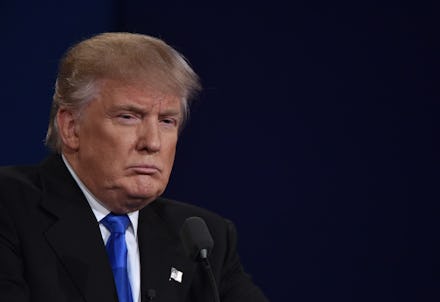Trump's battle to keep his tax returns private is inching closer to the Supreme Court

President Trump faced yet another legal blow Monday after a federal appeals court in Manhattan said Trump’s accounting firm must hand over his tax returns to New York prosecutors. With that unanimous ruling, the three-judge panel denied Trump’s request to overturn the ruling of a lower court from October that said he needed to comply with the subpoena of his tax returns by Manhattan District Attorney Cyrus Vance Jr.
Trump has been trying to keep eight years of his tax returns private, essentially making the argument that not only can a sitting president not be indicted, but that the sitting president should in fact also have total immunity from criminal investigation.
The New York appeals court on Monday rejected Trump's assertion that he has a shield of presidential immunity that protects his privacy in these sorts of criminal investigations. The three-judge panel was explicit in its unanimous decision that presidential immunity did not apply to his taxes in this case.
“Any presidential immunity from state criminal process does not extend to investigative steps like the grand jury subpoena at issue here,” they wrote.
This case began in September, when Vance attempted to subpoena Trump’s tax returns. This subpoena was part of an investigation Vance launched to look into Trump’s alleged payments of hush money to women who claimed they had extramarital affairs with Trump, including former porn star Stormy Daniels. The mere existence of this investigation, and the court rulings in its favor, has left many wondering if there is an actual possibility that Trump could eventually be criminally charged with income tax fraud. (Trump has denied the extramarital trysts.)
Trump’s lawyers fought back against Vance's subpoena, using that unprecedented argument that a sitting president cannot be investigated for any crimes, at all, while in office. Department of Justice lawyers joined that fight, arguing that the release of Trump’s tax returns would cause “irreparable harm.”
Vance requested that the courts allow him and his office to “pursue its investigation free from interference and litigious delay.”
On Oct. 7, Judge Victor Marrero of Manhattan’s federal court strongly rejected Trump’s legal team’s argument. Marrero issued a 75-page rebuke that called Trump’s legal team’s defense “repugnant to the nation’s governmental structure and constitutional values.”
A few days later, on Oct. 11, Trump lost a different fight over shielding his tax returns when a federal court ruled that his accounting firm must turn over documents subpoenaed by the House’s Oversight and Reform Committee.
If the president and his legal team choose to appeal Monday’s decision, it's likely the case will head to the Supreme Court. Such a hearing would not only be a blockbuster ending to this intensifying battle, but a major historical moment in setting the precedent for how much power the Constitution actually grants a president to be immune from not just prosecution, but also investigation.